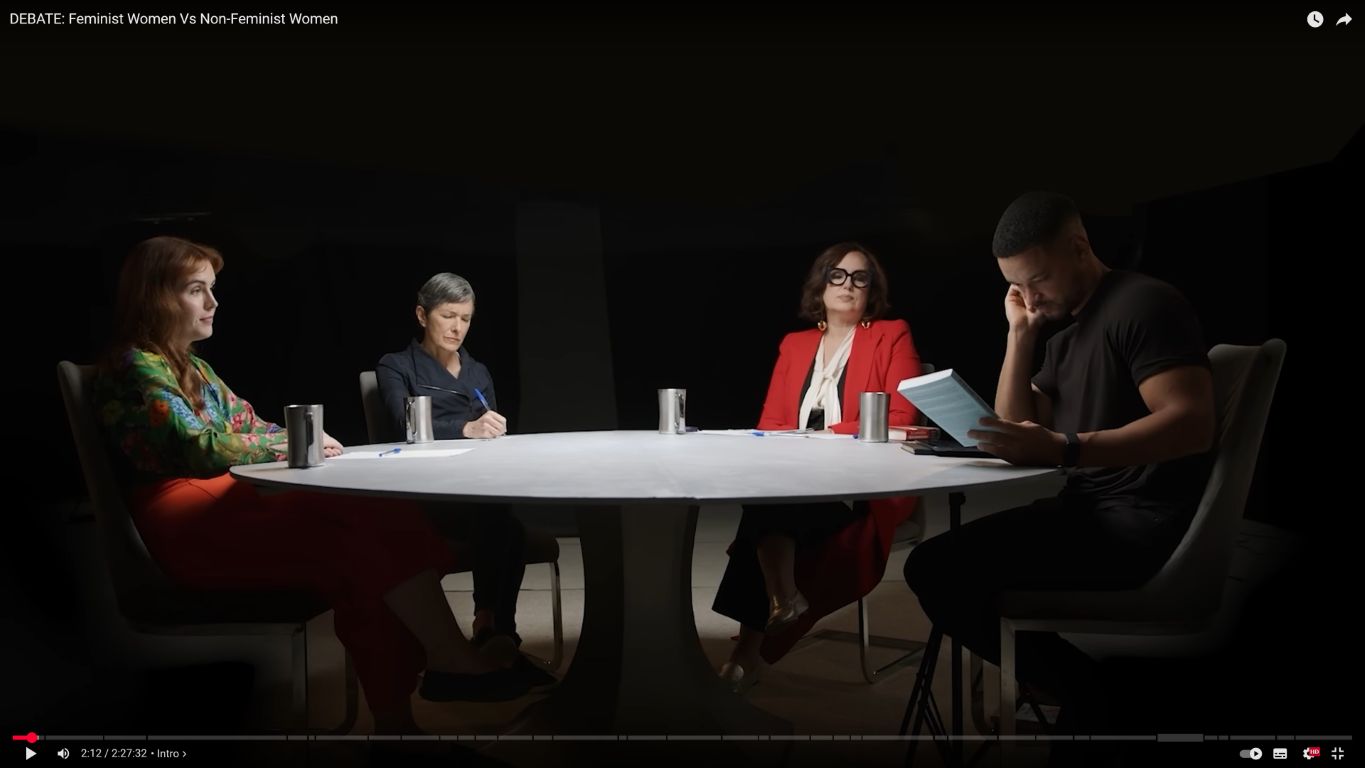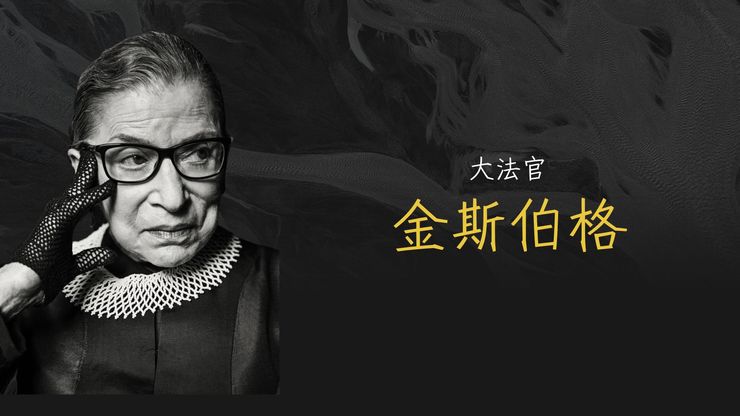RBG: A Life Dedicated to Justice
Video Description
This powerful documentary chronicles the extraordinary life and career of Supreme Court Justice Ruth Bader Ginsburg, from her early battles against gender discrimination as a lawyer to her iconic status as the 'Notorious RBG.' The film explores her groundbreaking legal work, her partnership with her husband Martin, and her unwavering commitment to gender equality and justice.
Related Topics
The 2018 documentary “RBG” offers an intimate portrait of one of America’s most influential legal minds and feminist icons. Directed by Betsy West and Julie Cohen, the film traces Ruth Bader Ginsburg’s journey from a young woman facing systematic discrimination to becoming the second woman ever appointed to the U.S. Supreme Court and a cultural phenomenon known as the “Notorious RBG.”
Early Life and Formative Experiences
The documentary begins by exploring Ginsburg’s childhood in Brooklyn, where her mother Celia instilled in her a love of learning and the importance of independence. The film poignantly depicts how her mother’s death from cancer just before Ruth’s high school graduation shaped her determination to make the most of every opportunity—opportunities her mother never had.
Harvard Law School: Breaking Barriers
At Harvard Law School, Ginsburg was one of only nine women in a class of over 500 men. The documentary captures the hostile environment she faced, including the famous dinner where the dean asked the female students why they were taking spots that could have gone to men. Rather than being discouraged, these experiences fueled Ginsburg’s lifelong commitment to fighting gender discrimination.
The Partnership with Martin Ginsburg
One of the documentary’s most compelling elements is its portrayal of Ruth’s marriage to Martin Ginsburg. Their partnership challenged traditional gender roles—Martin was the chef and primary caregiver during Ruth’s cancer treatment, while Ruth pursued her legal career. Their relationship demonstrates how gender equality benefits marriages and families, serving as a personal example of the principles Ruth fought for professionally.
Legal Strategy and Brilliance
The film details Ginsburg’s strategic approach to dismantling gender discrimination through the courts. As director of the Women’s Rights Project at the ACLU, she deliberately chose cases that would demonstrate how gender stereotypes harmed both men and women. By representing male plaintiffs in several landmark cases, she showed conservative justices how rigid gender roles limited everyone’s opportunities.
Landmark Cases and Legal Legacy
“RBG” examines several of Ginsburg’s most important cases, including Weinberger v. Wiesenfeld, where she argued that a widowed father should receive the same Social Security benefits as a widowed mother. The documentary explains how these cases incrementally built legal precedent for gender equality, laying the groundwork for broader women’s rights.
Judicial Philosophy and Approach
As a Supreme Court Justice, Ginsburg became known for her meticulous preparation, sharp questioning during oral arguments, and powerful dissenting opinions. The documentary explores how her background as a civil rights lawyer informed her judicial philosophy, emphasizing equal protection under the law and the importance of incremental progress.
The Notorious RBG Phenomenon
The film captures the cultural moment when Ginsburg became an internet sensation, particularly among young women who saw her as a symbol of resistance and perseverance. The “Notorious RBG” meme, inspired by rapper Notorious B.I.G., demonstrated how Ginsburg transcended traditional boundaries between legal scholarship and popular culture.
Health Struggles and Determination
Throughout the documentary, Ginsburg’s battles with cancer are woven into the narrative, showcasing her extraordinary determination and work ethic. The film shows her continuing to work and write opinions even while undergoing treatment, exemplifying her belief that she had important work to complete.
Relationship with Justice Scalia
One of the documentary’s most surprising elements is its exploration of Ginsburg’s close friendship with conservative Justice Antonin Scalia. Their relationship, built on shared intellectual respect and love of opera, demonstrates how principled disagreement can coexist with deep personal friendship.
Impact on Women’s Rights
The documentary illustrates how Ginsburg’s legal work fundamentally changed American society. From equal access to credit and employment to reproductive rights and educational opportunities, her cases touched virtually every aspect of women’s lives. The film shows how legal change can drive broader social transformation.
Dissenting Voice and Future Generations
In her later years on the Court, Ginsburg became famous for her powerful dissenting opinions, particularly in cases involving voting rights and gender equality. The documentary frames these dissents not as defeats but as messages to future generations of lawyers and justices about the ongoing work of expanding equality.
Personal Sacrifices and Trade-offs
While celebrating Ginsburg’s achievements, the documentary doesn’t shy away from examining the personal costs of her groundbreaking career. The film explores how her demanding schedule sometimes conflicted with family responsibilities, offering a nuanced view of the challenges faced by pioneering professional women.
Cultural Impact Beyond Law
“RBG” demonstrates how Ginsburg became a cultural icon whose influence extended far beyond the legal profession. From Halloween costumes to workout videos, she inspired people across demographics to engage with questions of justice, equality, and civic participation.
Educational Legacy
The documentary highlights Ginsburg’s commitment to education and mentorship, particularly her efforts to encourage young women to pursue legal careers. Her speeches and writings continue to inspire new generations of lawyers and activists committed to expanding civil rights.
The Fight Continues
While celebrating Ginsburg’s remarkable achievements, the documentary emphasizes that the work of achieving full gender equality remains unfinished. The film positions her legacy not as a completed triumph but as ongoing inspiration for continued advocacy and reform.
Cinematic Achievement
As a documentary, “RBG” succeeds in making legal history accessible and engaging. The filmmakers skillfully weave together archival footage, personal photographs, and contemporary interviews to create a comprehensive portrait that appeals to both legal experts and general audiences.
Cultural Timing and Relevance
Released during a period of intense political polarization and renewed attention to women’s rights, “RBG” resonated with audiences seeking examples of effective advocacy and principled leadership. The film’s success demonstrated public appetite for stories about legal and social justice.
Conclusion
“RBG” succeeds as both biography and inspiration, presenting Ruth Bader Ginsburg as a complex figure whose personal and professional lives were inextricably linked to her commitment to justice. The documentary reveals how one person’s dedication to principle and incremental change can transform society.
The film’s lasting value lies in its demonstration that progress requires both vision and patience, both legal strategy and personal sacrifice. Ginsburg’s story, as told through this documentary, continues to inspire those working for gender equality and social justice, proving that individual commitment to principle can create lasting change.
Through “RBG,” audiences gain not just knowledge of legal history but understanding of how social change happens—through dedication, strategy, and the willingness to fight for principles even when the odds seem insurmountable. Ginsburg’s legacy, captured brilliantly in this documentary, remains a powerful reminder that the work of justice is never finished.
Video Info
评论与讨论
与其他观众一起讨论这个视频
加入讨论
与其他观众一起讨论这个视频
加载评论中...

